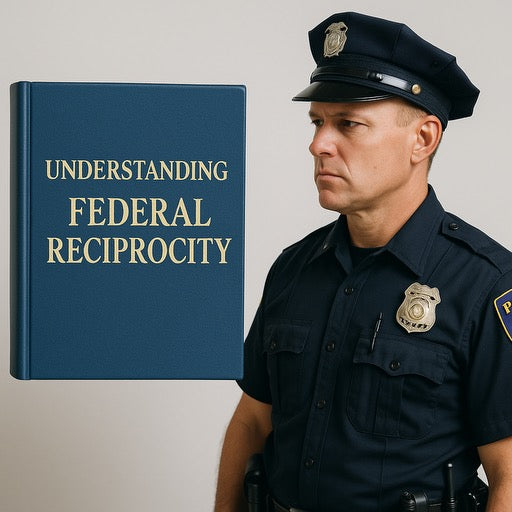Federal Framework: Full Faith and Credit & Reciprocity
Under the U.S. Constitution’s Full Faith and Credit Clause (Art. IV, §1), states are generally required to recognize the public acts, records, and judicial proceedings of other states. While this clause is most commonly applied to judicial decisions, it also forms the foundation for reciprocity in vehicle registration. Practically, this principle is reflected in state motor vehicle codes and reciprocity statutes, which allow vehicles validly registered in one state to be operated in another without requiring re-registration.
For example:
• 49 U.S.C. § 14504a prohibits states from imposing additional registration requirements on commercial motor vehicles that are properly registered in their home state.
• Similarly, state statutes (e.g., California Vehicle Code § 6700, New York Vehicle and Traffic Law § 250) extend temporary operating privileges to vehicles validly registered in another jurisdiction.
⸻

Why Law Enforcement May Misinterpret
Despite this legal framework, confusion arises because:
1. Vehicle Definitions Differ by State.
Some states classify side-by-sides (UTVs) strictly as off-highway vehicles. If an officer is trained under their state’s narrower definition, they may not immediately recognize the effect of another state’s registration.
2. No Uniform Federal Classification.
The National Highway Traffic Safety Administration (NHTSA) has not created a uniform “side-by-side” category under the Federal Motor Vehicle Safety Standards (FMVSS). This regulatory gap leaves states to define “motor vehicle,” “motorcycle,” “ATV,” or “quadricycle” differently.
3. Local Enforcement Discretion.
Officers may stop vehicles they perceive as non-compliant under their local code, even if the vehicle is validly registered elsewhere. These stops often arise from lack of training on interstate reciprocity rather than actual illegality.
⸻
Case Law Examples
Courts have generally supported reciprocity principles when valid out-of-state registrations are challenged:
• Hess v. Pawloski, 274 U.S. 352 (1927).
The Court recognized that vehicles validly registered in one state must be allowed to operate in another, though states retain power to regulate use for safety.
• State v. Ferrell, 236 N.C. 415 (1952).
North Carolina upheld that an out-of-state registration, if valid where issued, grants operating privileges under reciprocity statutes.
• People v. O’Rourke, 124 Cal. App. 752 (1932).
California affirmed that reciprocity agreements protect out-of-state drivers from duplicate registration requirements.
While none of these cases involve side-by-sides specifically, they affirm the broader principle: a vehicle legally registered in one state must generally be recognized in all other states.
⸻
Professional Conclusion
A Montana-registered side-by-side that is issued a street-legal title and license plate under Montana law is, by federal reciprocity principles and state-level statutes, entitled to operate on public roads in other states. Law enforcement misunderstandings stem from inconsistent definitions and training, not from legal invalidity. Unless a state passes explicit statutory exceptions (and even then, such laws are subject to constitutional challenge under the Full Faith and Credit Clause), the registration remains legally valid nationwide.
